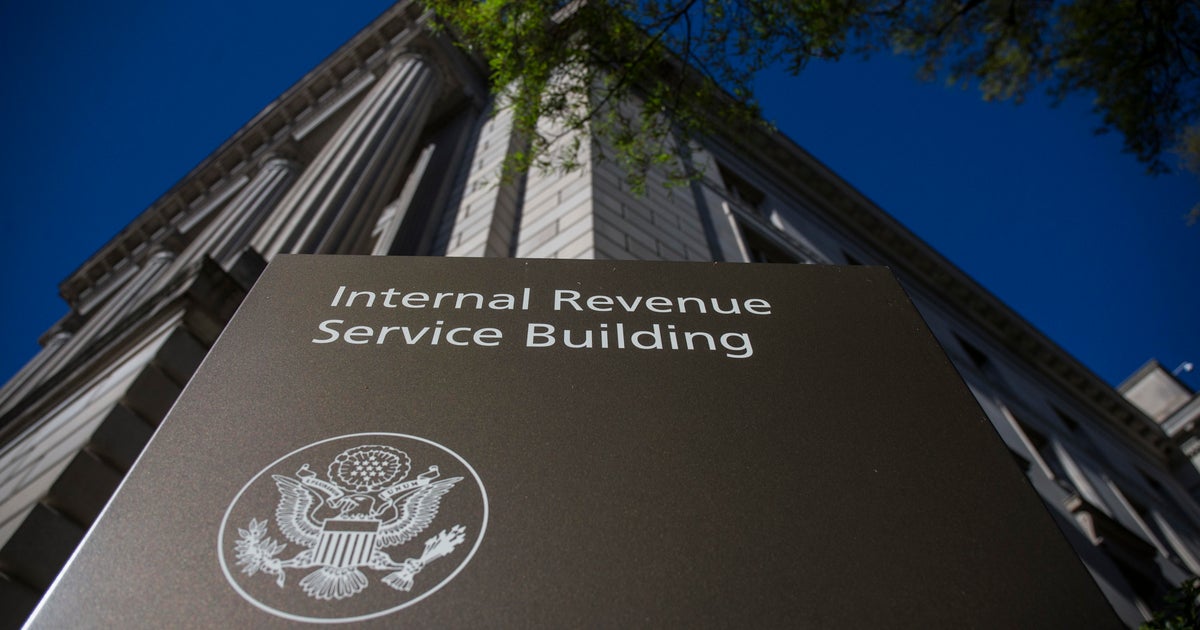
Two IRS employees who were granted whistleblower protections to share their concerns about the government’s alleged mishandling of the investigation into Hunter Biden are asking a federal judge to toss out a civil lawsuit brought by the president’s son against the federal tax agency.
Those whistleblowers, Gary Shapley and Joseph Ziegler, also have asked to intervene in the matter, arguing that the IRS has a conflict of interest in trying to defend their decision to speak out publicly and to Congress about their experience investigating the president’s son.
“The Whistleblower Protection Act gave them a right to discuss with the media the information they believed constituted gross mismanagement and an abuse of authority, like the mishandling of the Hunter Biden case,” lawyers for the two agents claim in arguments filed with a federal judge Friday.
The civil case in question was brought by Hunter Biden in September against the IRS, alleging that Shapley and Ziegler were part of a “campaign to publicly smear” the president’s son by divulging confidential taxpayer information about him. The suit does not name Shapley and Ziegler as defendants.
“IRS agents have targeted and sought to embarrass Mr. Biden via public statements to the media in which they and their representatives disclosed confidential information about a private citizen’s tax matters,” the lawsuit alleges.
The case, which is still in its early stages, offers no explicit role for Shapley and Ziegler to defend their decision to speak publicly, including on CBS News, about their observations during a long-running criminal tax investigation into Hunter Biden. That criminal case is scheduled to go to trial in June. Instead, it falls to the IRS to defend the decision of the two whistleblowers to speak out publicly.
In two separate motions filed Friday, the veteran IRS agents argue that they should be permitted to participate in the case in order to defend their actions and that the case should be dismissed.
“Shapley and Ziegler have a significant concrete interest in the outcome of this action: their careers, their reputations, and fending off adverse collateral consequences,” one motion says.
The two argue for dismissal on the grounds that they say they were careful to avoid identifying any confidential taxpayer information, and when they did divulge information about Hunter Biden, it was done in a manner that is protected by Congress and by whistleblower statutes.
The Department of Justice declined to comment when asked about the filings Friday. Neither the IRS nor attorneys for Hunter Biden has yet filed any formal reply to the requests by the two agents. It will be up to U.S. District Court Judge Rudolph Contreras to determine if they can intervene, after Biden and the IRS respond to the requests.
A year ago, Shapley came forward in an interview with CBS News to raise questions about what he alleged was special treatment in the probe of the president’s son, telling CBS News that dating back to the Trump administration, he was repeatedly prevented from taking steps in the IRS investigation he would have considered routine in other cases.
“We have to make sure as a special agent for IRS Criminal Investigation that we treat every single person exactly the same,” Shapley, a 14-year veteran of the agency, told CBS News at the time. “And that just simply didn’t happen here.”
The Justice Department has denied that Hunter Biden received favorable treatment.
Hunter Biden’s legal team has not responded to a request for comment.
There are strict laws governing the need for confidentiality in how IRS employees treat taxpayer information. At the time of his first CBS News interview in May, both Shapley and his attorneys told CBS News they were taking great care in how they navigated the decision to speak publicly.
The Biden lawsuit against the IRS cites specific statements Shapley and an attorney made at the time. It claims that during interviews on April 19 and May 24, Shapley and attorney Mark Lytle — who is not named in the lawsuit — publicly disclosed the existence of the investigation without Hunter Biden’s consent. And the suit claims that during a June 28 CBS News interview, Shapley made comments that disclosed confidential information about Hunter Biden’s taxes and finances. The whistleblowers dispute both claims.
Attorneys for the IRS argued in filings last week that a portion of the case should be dismissed because private citizens working on behalf of the IRS agents are not covered by the tax privacy provisions. The government also argued that disclosures are permitted if an IRS agent believes “such return or return information may relate to possible misconduct, maladministration, or taxpayer abuse.”
In the motions filed Friday, the two agents take issue with the IRS’s failure to seek a full dismissal of the lawsuit – opting instead to seek to have dismissed the claims based on alleged disclosures made by non-IRS employees, such as Shapley’s attorney. They argue that the IRS – as the target of the whistleblower complaints, is in no position to defend the agents’ actions.
“The conflicts of interest could not be more clear,” they write.
Hunter Biden’s suit seeks $1,000 for “each act of unauthorized disclosure” as well as an unspecified amount of punitive damages.
